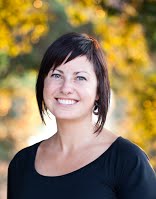 Kendra Klein is a Senior Program Associate at Physicians for Social Responsibility where she coordinates the California Healthy Food in Health Care program of Health Care Without Harm. She is also a lecturer in the Department of Environmental Science, Policy & Management at the University of California at Berkeley. Kendra has been active in the environmental health and sustainable food movements for over a decade, including community organizing at Breast Cancer Action, a national non-profit focused on addressing environmental links to cancer, and apprenticing on organic farms in California and Hawaii. She is a 2011 Switzer Environmental Fellow and has written for The Nation, Gastronomica, Environmental Politics, and Civil Eats. She holds a bachelors degree from Miami University of Ohio and a PhD in Environmental Science, Policy & Management from UC Berkeley.
Kendra Klein is a Senior Program Associate at Physicians for Social Responsibility where she coordinates the California Healthy Food in Health Care program of Health Care Without Harm. She is also a lecturer in the Department of Environmental Science, Policy & Management at the University of California at Berkeley. Kendra has been active in the environmental health and sustainable food movements for over a decade, including community organizing at Breast Cancer Action, a national non-profit focused on addressing environmental links to cancer, and apprenticing on organic farms in California and Hawaii. She is a 2011 Switzer Environmental Fellow and has written for The Nation, Gastronomica, Environmental Politics, and Civil Eats. She holds a bachelors degree from Miami University of Ohio and a PhD in Environmental Science, Policy & Management from UC Berkeley.
What environmental issues are of most concern to you?
In 2002, on the long drive from my home state of Wisconsin to California, I read Living Downstream by ecologist Sandra Steingraber. This “investigation of cancer and the environment” is the intellectual sequel to Rachel Carson’s, Silent Spring. Like Steingraber, the experience of cancer in my family – my mother’s breast cancer at age 30 and recurrence at 48 – brought my attention to the intimate interconnections between the health of our bodies and that of the environment. From pesticides to fracking, to climate change, I see this intersection as a powerful platform from which to work for change. My current focus is on creating food system change through an environmental nutrition approach which goes beyond counting calories and quantifying nutrients to define healthy food as the end result of a food system that conserves and renews natural resources, advances social justice and animal welfare, builds community wealth, and fulfills the food and nutrition needs of all eaters now and into the future.
What difficulties do you see facing women who are interested in becoming more involved in the environmental sector? Any recommendations on how women can overcome these?
I feel grateful to be of this generation, since so many women before me have helped to dismantle the external barriers to our pursuit of high-level careers. I think we need to continue addressing institutionalized inequalities, for example in pay. It is so often women who do the work of addressing threats to life, health, and the environment, and too often, this work is not adequately compensated. I think inadequate pay is one of multiple factors that can lead to burnout, including balancing career and family, and doing work that requires a great deal of passion. I think we need to remember, as Audre Lorde said, caring for ourselves is “not self-indulgence, it is self-preservation, and that is an act of political warfare.”
You recently finished your PhD in ESPM – any recommendations for WEN members interested in pursuing graduate studies in the environmental field?
Academia can be a difficult place for individuals committed to creating social and environmental change; theory and critique are far more valued than action and solutions. I designed my research in collaboration with the organization I now work for, Physicians for Social Responsibility, which allowed me to ground my academic work in real-world challenges. I would recommend seeking out fellow activist academics and developing research questions that set you up to engage with organizations and agencies that are doing work you respect and are interested in being a part of.
